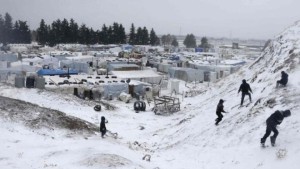Dhaka, Aug 16 – Describing the government’s “Bangladesh Delta Plan 2100” as totally confusing, initiator of Bangladesh Poribesh Andolon (BAPA) Dr Nazrul Islam on Sunday said the actual plan needs to be clarified to protect the country’s environment and save people’s lives.“India opens all gates of Teesta Barrage and others during overflow of the rivers. But we don’t get water in dry seasons when we need it. The Bangladesh government could have asked India to exchange a water-sharing agreement for (recently started) transit. India is taking all facilities from Bangladesh avoiding our demands,” he added.
The founder of Bangladesh Environment Network (BEN) said this in a virtual discussion on the release of his new book “Rivers and Sustainable Development”, published by the Oxford University Press.
Dr Nazrul said Bangladesh is suffering from river erosion on a greater scale due to the sudden opening of Indian barrages.
“Though India opposes, Bangladesh should sign international river agreements to protect against climate change impact and save the environment. The problems should be resolved soon otherwise it will go deeper. Bangladesh must tell India …no transit without rivers agreement,” he added.
He further said Dhaka’s waterlogging problem won’t be resolved if rivers and canals are not preserved properly. “Big rivers turn into canals now following the false decision of river dragging,” Dr Nazrul also said.
Dr Mohd. Abdul Matin, Executive Vice President, BAPA and Coordinator of National River Saving Movement presided over the function while Professor Md Khalequzzaman, Lock Haven University of USA; Dr Ainun Nishat, Emeritus Professor of BRAC University; Dr Muzibur Rahman Hawlader, Chairman of National River Conservation Commission (NRCC); Sharif Jamil, Buriganga Riverkeeper and General Secretary of Bangladesh Poribesh Andolon (BAPA) also attended the programme.
However, the specific goals of Delta plan are— Ensuring protection from the devastation of floods and climate change, water safety and attaining more skills in water use, building an integrated and sustainable riverine area and estuary management, preservation of wetlands and ecology and ensuring their proper utilisation, building effective organisation and justified good governance for ensuring intra- and inter-countries water resources, and ensuring optimum level of integrated use of land and water resources.
According to the Planning Ministry and Planning Commission, the Delta Plan divides the country into six hotspots on the basis of 33 types of risks due to climate change and unplanned urbanization.
The Plan will get emphasis in different development plans, including the upcoming 8th Five-Year Plan.
Bangladesh will also seek cooperation from its neighbouring countries like India, Bhutan, Myanmar and China in ensuring the protection of common rivers. – UNB




